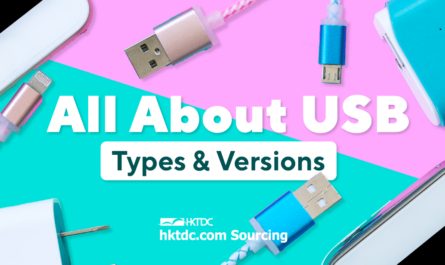The Latest Stationery Market Trends
Selling stationery has become more than a seasonal, back‑to‑school business. The widespread use of computers, smartphones and tablets has increased sales of IT‑related products. There is therefore sustained demand for computer accessories such as USB flash drives, linking up traditional wholesalers with IT specialists.
Developments in technology have also affected the traditional stationery business. Computerised electronic devices enable paperless work and provide digital methods for documenting and storing information. The rise of electronic communication forms such as e‑mail has also reduced demand for traditional stationery products. Responding to this trend, manufacturers have begun looking to market traditional stationery as gifts or luxury items, offering unique designs with stylish alternatives to the mainstream gold, silver or lacquer finishes.
Competition in the stationery industry is keen, which adds pressure on prices. As well as taking cost‑cutting measures, such as relocating to less expensive production bases, suppliers need to counter this pressure through innovation, making use of striking designs and attractive colours, and by reaching out to new target groups. Manufacturers can no longer regard themselves as just the sellers of a product. Increasingly, products must be sold along with a concept.
Product Trends
1. Technology-Driven and Multi-Functional Stationery
The proliferation of computers and mobile devices has had a definite impact on the development of stationery products. The stationery industry is exploring new growth areas through modifying traditional stationery items with new technologies. For example, the combination of smart pen technology, digital ink, cloud storage and artificial intelligence (AI) enables handwriting and drawings on paper to be converted into text and image formats on screens. Another growth area is the sale of computer consumables such as printing papers, labels, mouse pads, printer inks and USB devices.
Stationery products are becoming more sophisticated, focusing on novelties and items with multiple functions. For example, message pads now come with light displays showing incoming messages and dual-time LCD clocks. Manufacturers are also turning out multi‑function ballpoint pens that incorporate features such as magnifying glasses, needles, and threads, torches or even USB memory sticks.
2. Green Stationery
Green office products, such as notebooks made from recycled paper and biodegradable pens, are gaining popularity, thanks to advances in technology and manufacturing processes that have lowered the cost of producing recyclable stationery. Paper products certified by the Forest Stewardship Council (FSC) are increasingly in demand. FSC certification ensures that paper products are made from wood taken from responsibly managed forests, providing a guarantee of a high level of environmental and social responsibility from forest to the manufacturer to the merchant. In addition, there is a greater emphasis on plastic‑free packaging in stationery products. For example, Mitsubishi Pencil Company UK, known for its Uni‑ball brand, launched cardboard packaging last year to fully replace plastic as part of its back‑to‑school campaign.
3. Personalised Stationery

Whilst demand for traditional stationery is declining as companies move to paper‑free environments, personalised stationery is becoming more popular. This can be seen on the e‑commerce site Etsy.com, which has multiple stores selling personalised products such as customised note cards, business card holders and monogrammed leather notebooks. Brands such as Typo, kikki.K and Moleskine also offer personalised stationery to stimulate sales across the category.
4. Renewed Interest in High-end Writing Instruments
In recent years, a growing number of consumers have sought creative and meditative activities, such as western calligraphy, as a means of taking a break from the digitalised world. Despite niche demand, such activities are likely to drive sales of high‑end writing instruments and stationery supplies such as branded fountain pens and inkwells, particularly in developed countries. High‑end writing instruments also continue to signify craftsmanship and quality and remain popular as gifts for both personal and corporate occasions.




















